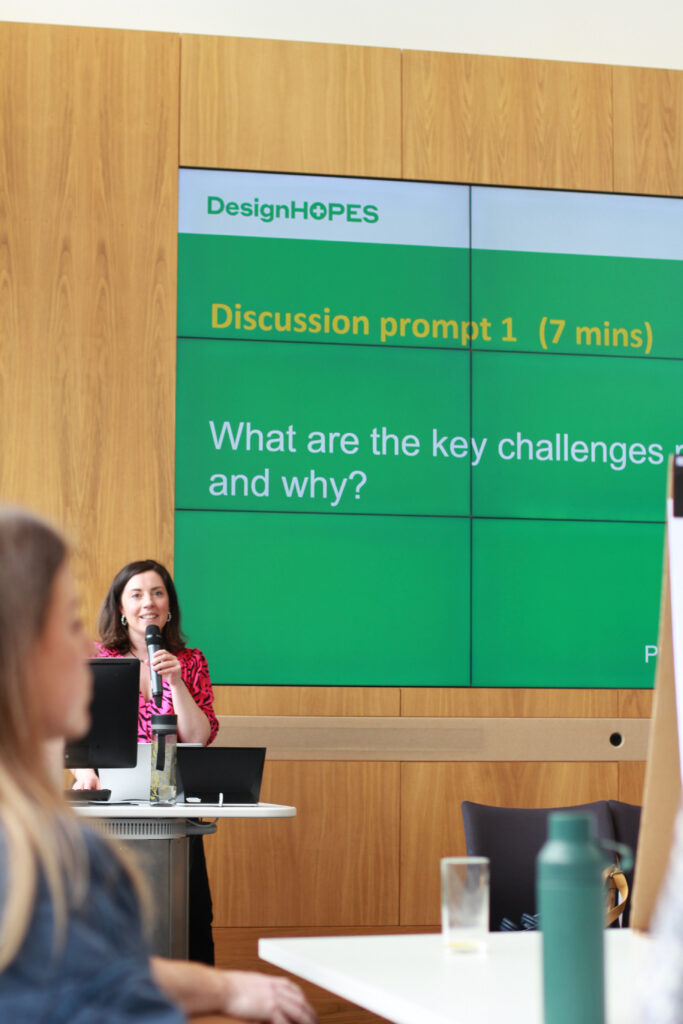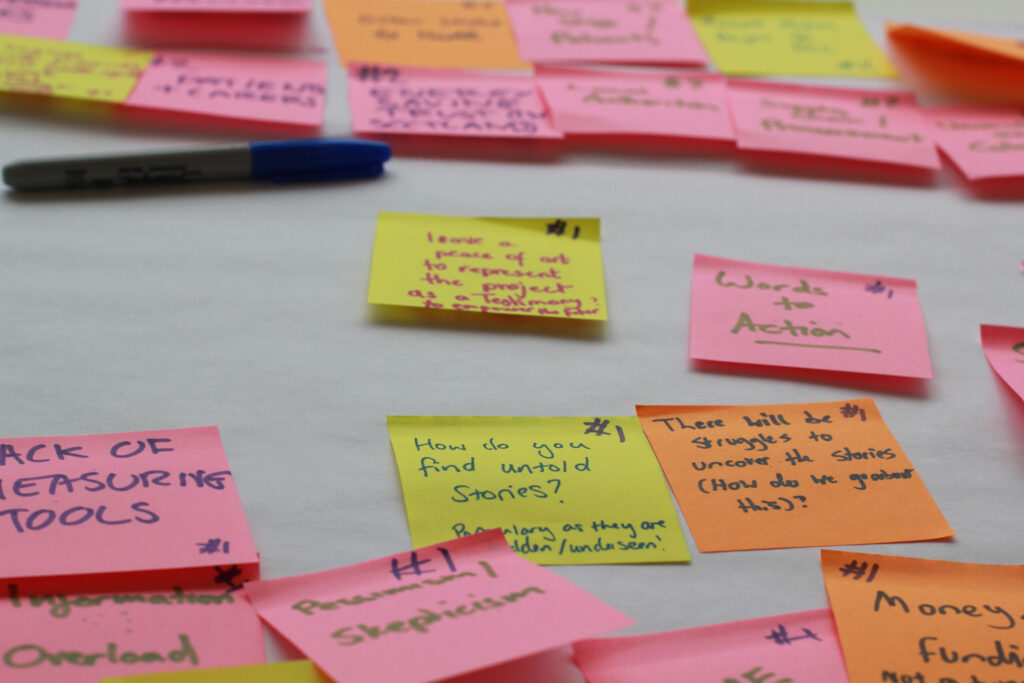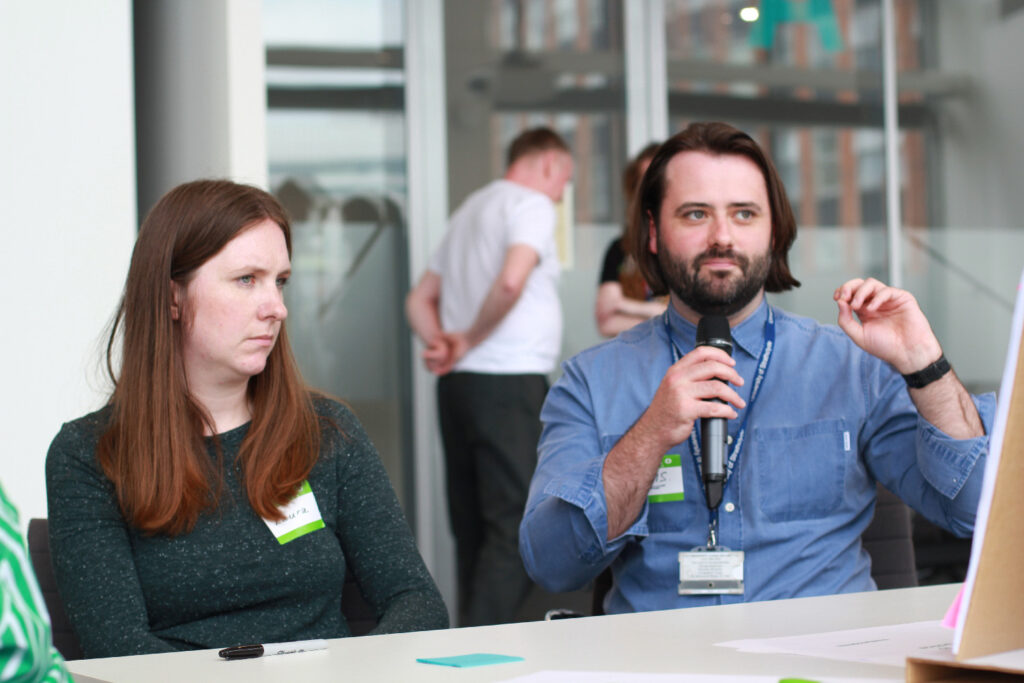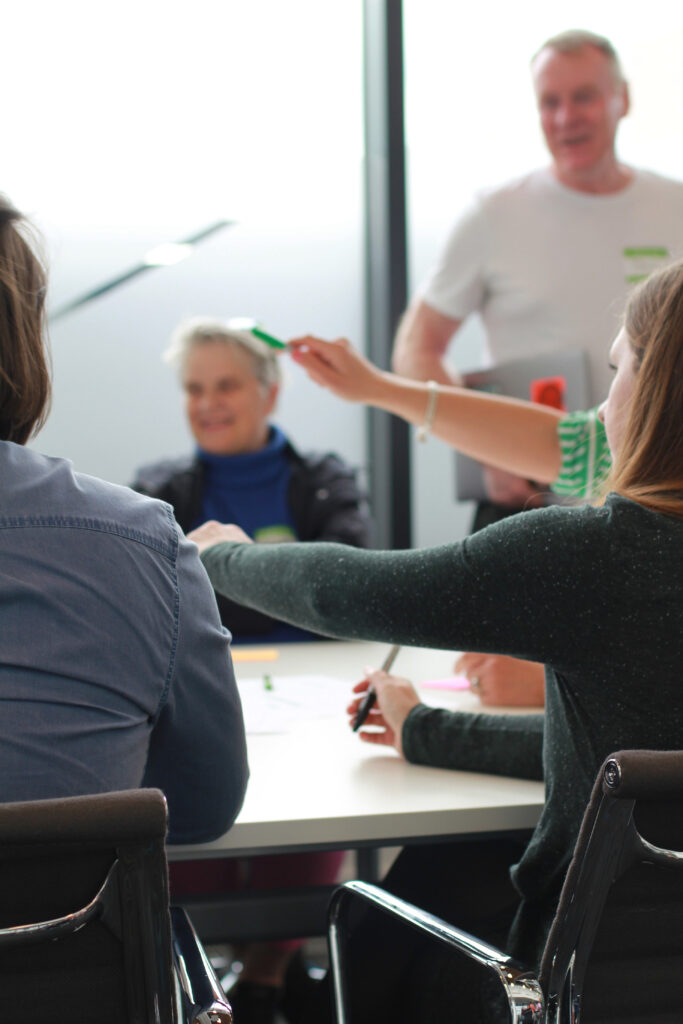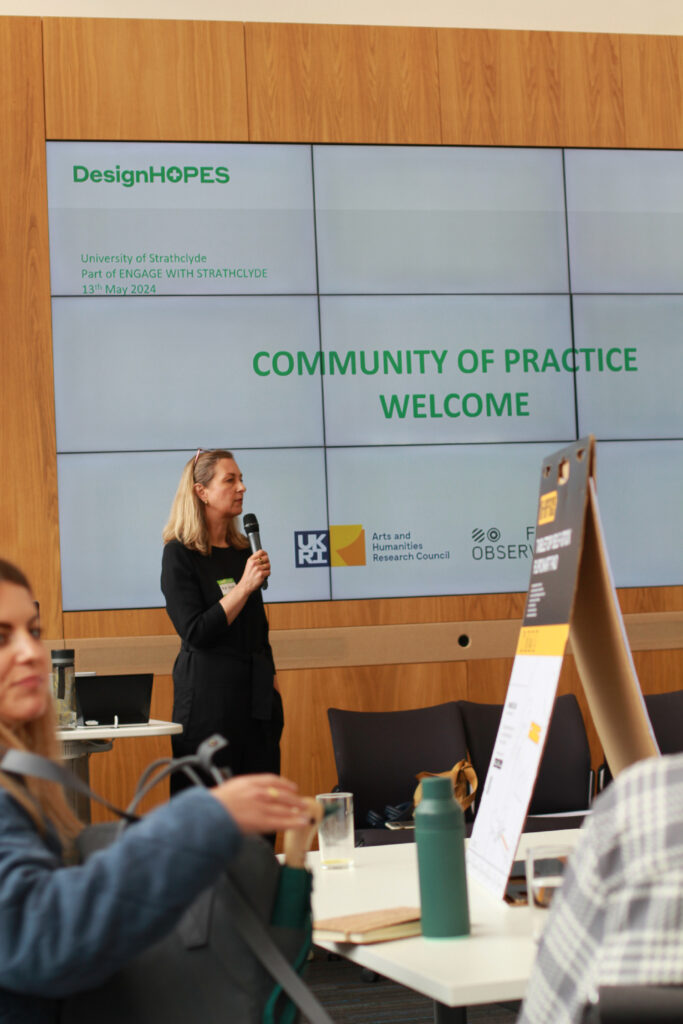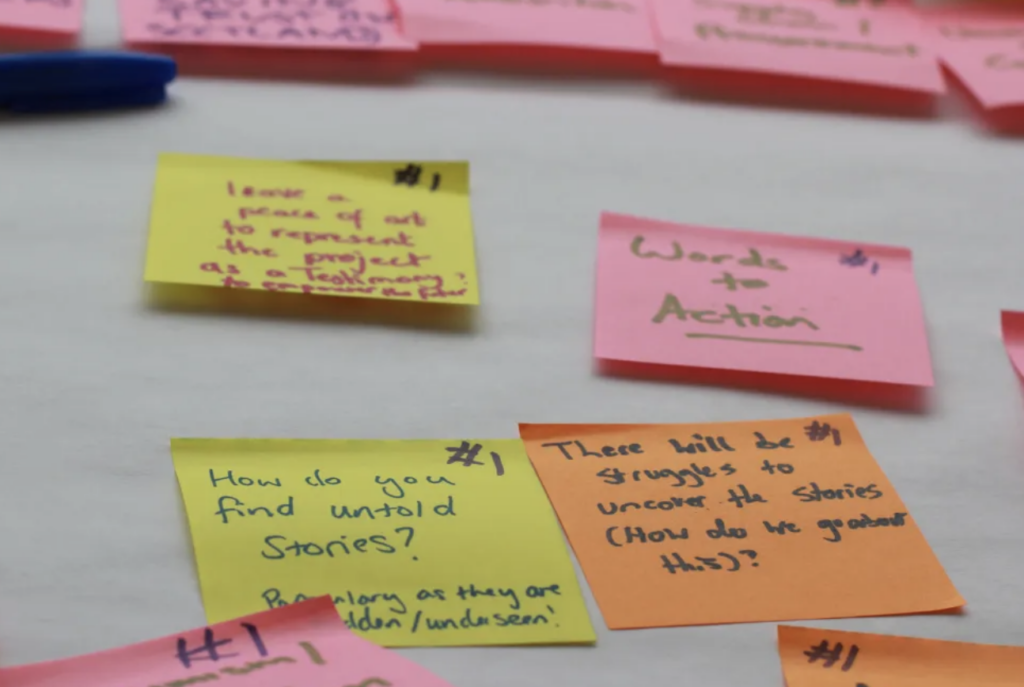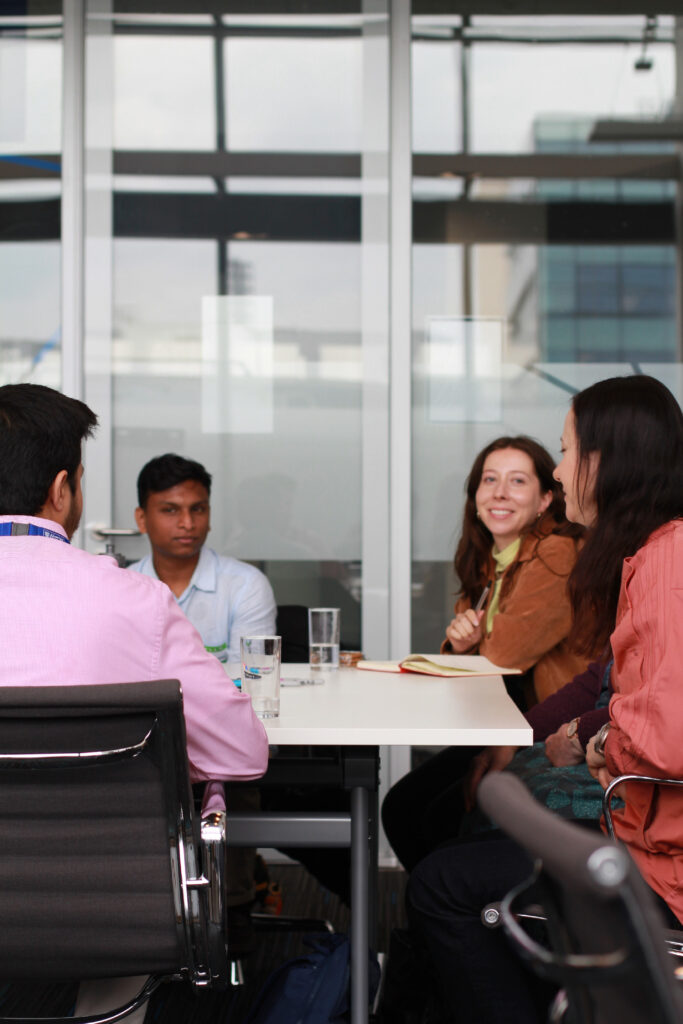
Community of Practice
We know that addressing sustainability challenges in healthcare means working together.
The Design HOPES CoP represents one community and two Working Groups: Green Futures Storytelling and Design Policy Interface.
Together, the Working Groups act as a platform to support green transition initiatives in the health and social care ecosystem, offering a space to share and amplify narratives of progress.
Our goal is to highlight solutions and celebrate the people behind them, providing inspiration and actionable insights for the community. As a Community, we build case studies focused on change and success, and explore strategies to develop them.
The Design HOPES CoP aims to:
- Create a vibrant and inclusive community that supports mutual learning, and shared purpose across diverse stakeholders;
- Develop, document and disseminate narratives, innovative ideas, best practices, and collective actions for a just and green transition;
- Engage with and influence policy, provide design-led recommendations and showcase possible solutions.
Gallery (6)
How to get involved
Design HOPES CoP members typically have an interest or curiosity in design-led innovation and change and represent a wide range of expertise: from healthcare practitioners and service users; policy makers; researchers; and members of the public.
We meet online roughly every 2 months, with occasional in-person events, for a facilitated discussion in an informal, creative and welcoming atmosphere.
If you would like to join the Design HOPES Community of Practice, or would like to have a chat in the first instance, please get in touch with us here.

